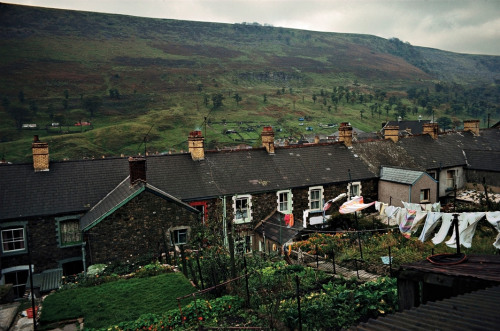You Have The Most Hilariously Naive Politics I've Ever Seen, It's Milquetoast Pacifist Liberalism Meets
you have the most hilariously naive politics i've ever seen, it's milquetoast pacifist liberalism meets autistic rationalism. grow a fucking backbone you fuck.
I think there’s something deeply wrong with any kind of political environment in which “I am unconditionally not okay with mass murder” is considered contemptibly pacifist.
I’m not even saying that mass murder shouldn’t be discussed (though I think it’s super inappropriate to tell a fellow participant in the conversation that they should be murdered), just that certain subbubbles of the Left have constructed this environment in which it is inherently pathetic, inherently contemptible, to say “mass murder is a really awful thing and if we can achieve our goals without it that’s worth striving for” or even “no matter what, I won’t endorse or participate in mass murder”.
I can imagine how I’d be a Marxist. 30,000 kids die preventable deaths every day and that makes me angrier and sadder than you can possibly imagine and if I’d gotten ensnared in an ideology that claimed the only way for that to end was to kill all of the rich people, I’d probably also go around saying “kill all the rich people!” But I hope I’d never, ever equate “willingness to call for murder” with “moral strength” or “strength of character”.
Valuing life is moral strength. Protecting people is strength of character. Calling for mass murder from your keyboard is cowardice. And the communities that deny those things, that circle the wagons around their conviction that willingness to kill people is equivalent to having a backbone, that claiming “the rich all deserve to die” is moral strength, that caring about human life is hilariously naive -
- well, first of all, you’ll never get anything done. My friends and I will end those deaths, eradicate malaria, fix global inequality, hunt down every source of human suffering and watch it take its last breath while you’ll sit there going “milquetoast pacifists! hilariously naive! the rich are not innocent!”. But second of all, you’ll spend your not-accomplishing-anything time in a bubble where caring about all human life is a weakness, where not wanting to murder people is disgusting and contemptible, and I know people are different psychologically but I can’t imagine anything worse than that.
So, just so you know, there are people who are angry about global inequality, people who want to end all of the bad things in the world, people who feel the same pain and anger that you feel. But we don’t treat mass murder as inevitable. We don’t call people weak for disagreements. We don’t admire people for their willingness to kill for the cause, or even for their willingness to suffer for the cause - just for their ability to change stuff so there’s no more cause and we can all retire happily to a world without poverty. And we’d love to have you. If you ever get tired, come join us, we milquetoast autistic rationalist liberals, because you don’t have to rant on the internet about killing people to earn our esteem, you just have to fix stuff.
More Posts from Dclcq and Others
You licked houmous off my fingers which is one way to win an argument — Shailja Patel, Love Poem for London
I’m not so worried about the dangers of mental junk food. No, my worry is that you won’t put enough really excellent stuff into your brain. I’m talking about what you might call the “theory of maximum taste.” This theory is based on the idea that exposure to genius has the power to expand your consciousness. The theory of maximum taste says that each person’s mind is defined by its upper limit—the best that it habitually consumes and is capable of consuming. ... Our maximum taste shrinks. Have you ever noticed that 70 percent of the people you know are more boring at 30 than they were at 20? I’m worried about the future of your maximum taste. People in my and earlier generations, at least those lucky enough to get a college education, got some exposure to the classics, which lit a fire that gets rekindled every time we sit down to read something really excellent. I worry that it’s possible to grow up now not even aware that those upper registers of human feeling and thought exist.
David Brooks

Fine Art of the Forest
(c) riverwindphotography, August 2024
"Mäletan, kuidas sa mõne aasta eest südametäiega pahvatasid metsaraiumise kohta: see on ju riiklik laastamine! Ja veel enam jäi hinge kõrvulukustav vaikus, mis peale seda mõtteruumis maad võttis. Ei tõtanud keegi noid sõnu parandama ega ümber lükkama, las vana mees räägib, maailm veereb edasi, uued uudised tulevad ja ebamugavus lahtub, piinlik apsakas ununeb. Aga see, mis oli varjul nende sõnade taga, jäi. See pilt, kuhu osutas sinu tõstetud sõrm. Vaadake seda maad, milline häbi! See, mida riik on teinud oma loodusega, ei ole olnud väärikas. Eesti loodusega on läinud samamoodi, nagu läks indiaanlastega. Selle maa loodus on lõputute seadusemuudatuste, arengukavade ja töötubade kaudu viimaks ikkagi inimeste käest välja petetud, nende hinge on väärkoheldud, väärikust alandatud. Eesti Loodus elab edasi reservaadis, see on ilus, seda saab imetleda, sealt metsaande korjata, piltegi teha, seminare ja töötubasid korraldada. Aga midagi on muutunud, lõplikult. Midagi väga olulist on surnud – eks sõnastagem see. Mis see siis on? Pihta on saanud loodus, aga ka usk elu põhiväärtustesse. Usk Eesti looduse kaitsesse on kokku kukkunud. Selle asemele on tulnud teadmine, kui odav on riik, kui alandlik ja hirmunud, kui lihtne on teda raha ja ähvardustega üles osta, panna tegema seda, mida ta mingil juhul teha ei tohiks. Riik on samm-sammult taganenud raha surve ees. Riik on kaotanud väärikuse. See on kõige hullem asi, mis saab juhtuda. Loodus annab riigile väärikuse. Loodus on riigi südametunnistus. Ühiskonda ei iseloomusta mitte see, mida ta loob, vaid see, mida ta keeldub hävitamast. Nii on arvanud Ameerika looduskaitsja John C. Sawhill."
- Valdur Mikita Järelhüüe Fred Jüssile "Head teed sulle, kotkas"
A fact is what won’t go away, what we cannot not know, as Henry James remarked of the real. Yet when we bring one closer, stare at it, test our loyalty to it, it begins to shimmer with complication. Without becoming less factual, it floats off into myth. Italo Calvino’s Mr Palomar looks at the sky, his lawn, the sea, starlings, tortoises, Roman rooftops, a girl, giraffes and much else. He wants only to observe, to learn a modest lesson from creatures and things. But he can’t. There is too much to see in them, for a start. … And there is too much of himself and his culture in the world he watches anyway: the universe is littered with the signs of our needs, with mythologies.
Michael Wood
look, it’s 01:32, and the notebooks in the pits of my drawers are not enough for the horror that is tropical disease biology studies…
I wonder, when you decide to voice your questions, when you send off your impressions, when you speak or write or type, out of the blue, to your unsuspecting peers, is it done with an obstinate hope that you will receive at the very least any kind of response? A measured reply, despite the overwhelming standard of there seeming to be so few who would not only appreciate the question, but would consider an answer at all.
In a manner that is self-deprecating, I think, I have been hunting for forms of connection that are more opportune for people who would rather not engage in anything so "aggressive" if "cute" without first throwing their daily habits into disarray. For whom such randomly expressed vexations of admittedly pretentious proportions pose as minor amusements, surprising puzzles, forms of performance art, and above all, a craving for approval–the latter, undoubtedly, many of my hurriedly scribbled down remarks are, but more, I suppose, a form of reassurance to myself that it is fine if I cannot help myself. Rather that than a kind of validation that is supposed to instill in me, over and over again, my sense of self-identity and worth. That would be very silly, don't you think? But it is to be expected that more often than not we will seem silly regardless, and are loved despite of it, than seem as we want to be, and are loved because of it. So herein then, ought we not to give free reign to the expectations of others, and to our own, and tailor our contentment accordingly?
From there has emerged, I reckon, the infamous, “Nevermind that,” for which I am chastised here and there alike. Yet it occurs to me that I do not dismiss so much myself, but what I see as the toil and burden for you to bear if I did not do so.
I have never thought of it like this before, or thought of any of it for the longest time, if only in passing sneer in relation to my own expectations of people. Suppose I have dismissed thinking about it entirely, but wouldn't that truly be considered as “settling”, after all?

original artwork for Agalloch, by Fursy Teyssier of Les Discrets
-
 examishbookwyrm liked this · 2 months ago
examishbookwyrm liked this · 2 months ago -
 iamaine liked this · 4 months ago
iamaine liked this · 4 months ago -
 notrussiafactsanon liked this · 6 months ago
notrussiafactsanon liked this · 6 months ago -
 blushedhinata reblogged this · 7 months ago
blushedhinata reblogged this · 7 months ago -
 harperhug reblogged this · 7 months ago
harperhug reblogged this · 7 months ago -
 aimie-academie liked this · 10 months ago
aimie-academie liked this · 10 months ago -
 f1m2pete reblogged this · 10 months ago
f1m2pete reblogged this · 10 months ago -
 f1m2pete liked this · 10 months ago
f1m2pete liked this · 10 months ago -
 itsheckinwes reblogged this · 10 months ago
itsheckinwes reblogged this · 10 months ago -
 itsheckinwes liked this · 10 months ago
itsheckinwes liked this · 10 months ago -
 maid-of-timey-wimey reblogged this · 10 months ago
maid-of-timey-wimey reblogged this · 10 months ago -
 needabetternamelater reblogged this · 10 months ago
needabetternamelater reblogged this · 10 months ago -
 humanfist reblogged this · 1 year ago
humanfist reblogged this · 1 year ago -
 dchan87 liked this · 2 years ago
dchan87 liked this · 2 years ago -
 jacobhuyck liked this · 2 years ago
jacobhuyck liked this · 2 years ago -
 filigranka liked this · 5 years ago
filigranka liked this · 5 years ago -
 sarenth liked this · 5 years ago
sarenth liked this · 5 years ago -
 asterofthevoid reblogged this · 5 years ago
asterofthevoid reblogged this · 5 years ago -
 consumptive-sphinx liked this · 5 years ago
consumptive-sphinx liked this · 5 years ago -
 swordgunbrella liked this · 5 years ago
swordgunbrella liked this · 5 years ago -
 somewhere-in-the-dungeon liked this · 5 years ago
somewhere-in-the-dungeon liked this · 5 years ago -
 simpsonparkdrive liked this · 5 years ago
simpsonparkdrive liked this · 5 years ago -
 dusty-memories reblogged this · 5 years ago
dusty-memories reblogged this · 5 years ago -
 mentalwires liked this · 6 years ago
mentalwires liked this · 6 years ago -
 peppermintfeminist liked this · 6 years ago
peppermintfeminist liked this · 6 years ago -
 quailgirlpeep liked this · 6 years ago
quailgirlpeep liked this · 6 years ago -
 thecrustofastar liked this · 6 years ago
thecrustofastar liked this · 6 years ago -
 bloodpressurecuff liked this · 6 years ago
bloodpressurecuff liked this · 6 years ago -
 helloijustreadyourpost liked this · 6 years ago
helloijustreadyourpost liked this · 6 years ago -
 sweetwateriver liked this · 6 years ago
sweetwateriver liked this · 6 years ago -
 garbagexqueer liked this · 6 years ago
garbagexqueer liked this · 6 years ago -
 molibdenita liked this · 6 years ago
molibdenita liked this · 6 years ago -
 un-tide liked this · 6 years ago
un-tide liked this · 6 years ago -
 kelpforestdwellers liked this · 6 years ago
kelpforestdwellers liked this · 6 years ago -
 manslaughter liked this · 6 years ago
manslaughter liked this · 6 years ago -
 walkingsaladshooterfromheaven reblogged this · 6 years ago
walkingsaladshooterfromheaven reblogged this · 6 years ago -
 inusaba-moved liked this · 6 years ago
inusaba-moved liked this · 6 years ago -
 jellydishes liked this · 6 years ago
jellydishes liked this · 6 years ago -
 carnivorousfeminist reblogged this · 6 years ago
carnivorousfeminist reblogged this · 6 years ago -
 carnivorousfeminist liked this · 6 years ago
carnivorousfeminist liked this · 6 years ago -
 heteroeroticsubtext reblogged this · 6 years ago
heteroeroticsubtext reblogged this · 6 years ago -
 heteroeroticsubtext liked this · 6 years ago
heteroeroticsubtext liked this · 6 years ago -
 birdsaregood liked this · 6 years ago
birdsaregood liked this · 6 years ago -
 the-sun-in-winter liked this · 6 years ago
the-sun-in-winter liked this · 6 years ago







